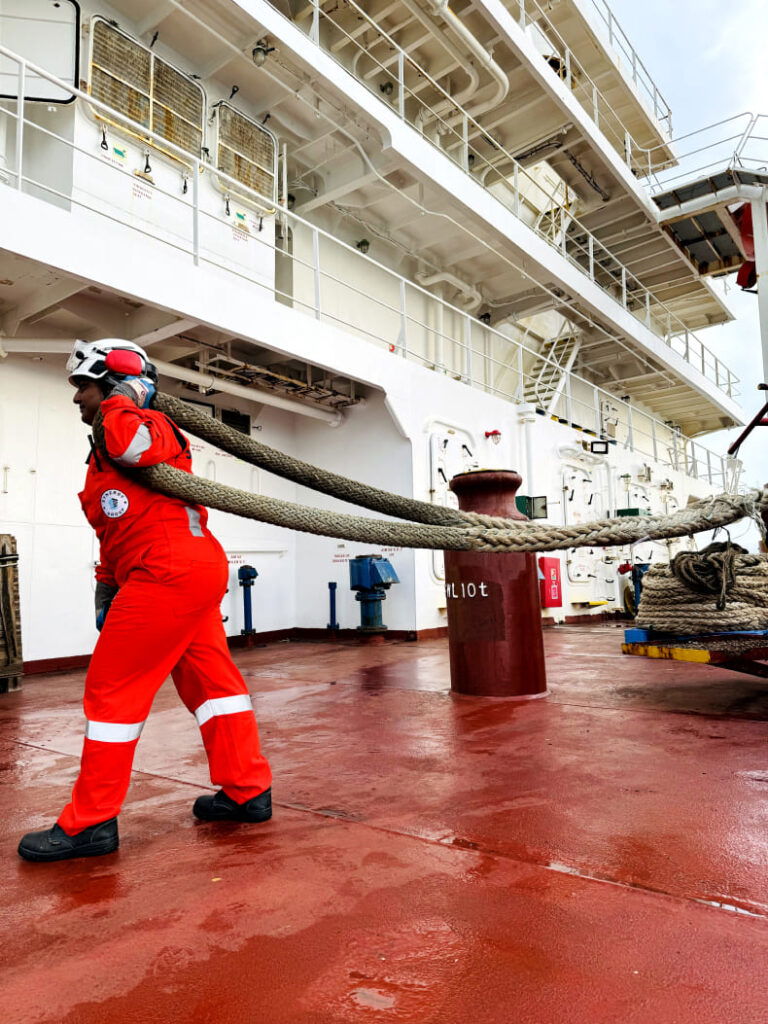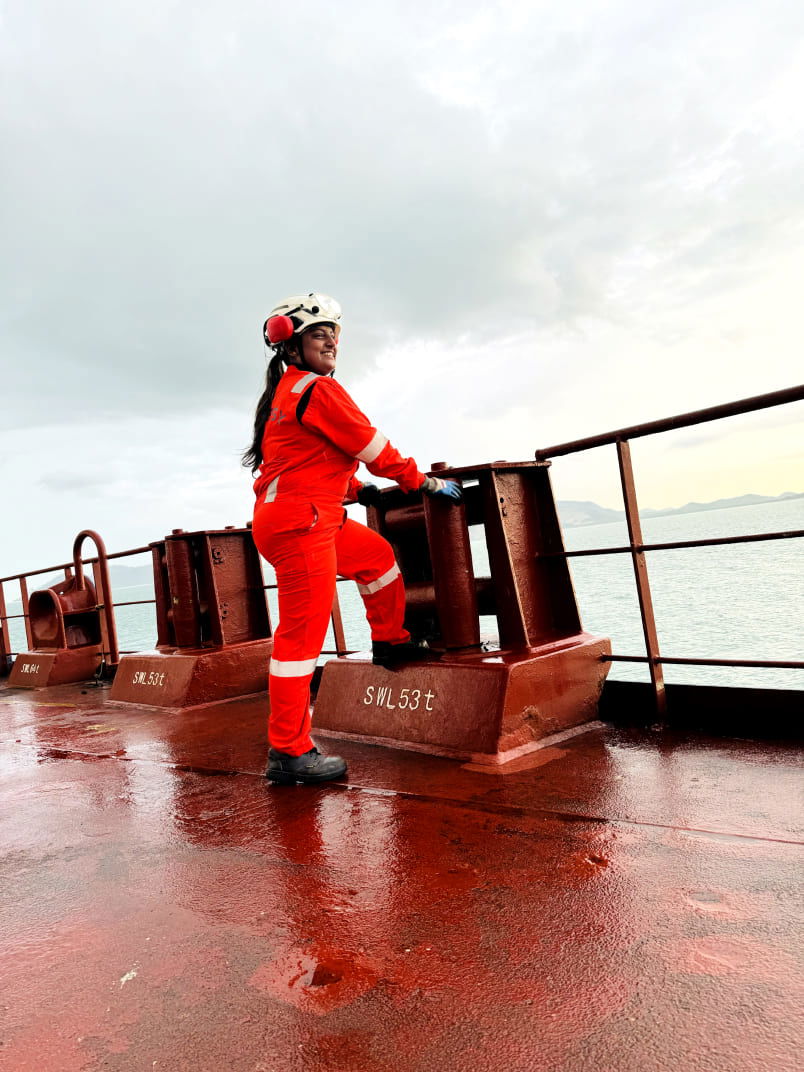1. Why did you want to sail in the Merchant Navy?
The best thing, and why I always wanted to be part of the Merchant Navy, is that it gives you a great sense of identity in thrilling sailing, worldwide, with a multinational crew who all work together as a family. It means that I can fulfill the dreams that I had at an early age.
2. Where did you complete the training for your role?
This was at SAMS, the Southern Academy of Maritime Studies in Chennai, where I did the General Purpose Rating course.
3. How did you join the Synergy Marine Group, and what has been your experience sailing with them?
I joined Synergy in 2021 via their entrance exam and interview process and I am happy to have done that. For example, I find great resonance with iSTEER, the company’s core values of Integrity, Safety, Transparency, Empathy, Empowerment and Respect. I am on my third vessel with Synergy and it has all been a great experience.
4. What are the challenges that you face in your role as an Ordinary Seaman?
Sailing as a Ordinary Seaman was not so easy for me, and it was the same for the other new joiners, too, during the early days. It was quite tough to get used to the environment, but I never gave up and I soon started to establish good relationships with my colleagues and seniors. Doing that really had a positive impact on my training and my overall seamanship, and of course when I started improving I began to make others feel comfortable with me. I am sure that, industrywide, it will eventually work out that there will be no gender difference on board and we all are equal.
5. How do you handle tasks that require physical strength and endurance, such as lifting heavy objects or working in challenging weather conditions?
On board ship every day is a full (and for me right now, physical) day, so I get myself prepared for everything, no matter if I am working in bad weather or having to handle heavy tools. I always try to prepare myself, both physically and mentally, to be as near as possible a perfect sailor.

6. What is the best thing about working at sea?
From my own outlook, the best things are the morning sunrise which gives me new hope at the start of each day, the sky whose vastness reminds me that I always have to go forward in life, the waves which remind me that I am strong, the wind which is always refreshing and finally a glorious (and almost healing) sunset which makes me feel calm.
7. What is the one thing that should change to make life better on board?
It will take time to accomplish this, but the one key change will be when every male seafarer, worldwide, accepts women seafarers – I know that not all yet do – and treats women the same as regards exposure to tasks and basically allows them to sail just as men do.
8. Have you faced any particular challenges as a female seafarer?
Every day presents a different challenge to me, as a seafarer, which I am very happy to accept, and the same applied to those that I have faced as a female seafarer, such as working with some who, at that time, could not bring themselves to accept a woman as a rating and as involved in ship operations. I think in fact that it is they who faced the bigger challenge, i.e. getting their minds round that.
9. Female seafarers are still comparatively scarce, but things are changing for the better. Do you agree?
Yes, and more and more often women can sail safely – I mean, without any prejudice or unpleasantness – and freely, by which I mean they are treated just like men in terms of the work and how they are thought of.
10. What are some of the advantages of having women on board?
First of all, this changes the environment, in making it more like situations ashore. Others have said that, too. Also, logically, in the work context, having a good relationship, bonding and so better understanding the whole thing about women seafarers will make the work itself more interesting.
11. What further changes do you think the maritime industry needs to make to improve gender equality and attract more women to a career in seafaring?
The industry needs to give more opportunities for female ratings, because that is how most women will start and the more they see that there are these openings, the more they will apply.
12. What are your aspirations, and where do you see yourself in five years?
My dream is to become a Captain. That will mean a lot of hard work, but I know that I have it in me to achieve that, and I hope that in the coming five years I will see myself as an officer.
13. What do you do when you are ashore?
I like to travel with my family and friends, and sometimes alone, and explore places and make good memories. I also like to play outdoor games and generally to be physically active.

14. If you ever changed to a shore-based role, what would you miss most about working at sea?
I never plan to change my seagoing career because I love my workplace so much. I enjoy navigation watches and port watches, and most of all actually steering the ship, so if I changed role I would miss all this.
15. Share something interesting about yourself that we might not know
One thing is that I can make friends very easily, and make myself completely comfortable with everyone in any situation. I think it is called having good interpersonal skills, though maybe that phrase does not fully cover it. I am also a very confident person, so I think that in terms of work I will be able to measure up to anyone.
16. What advice would you give to anyone considering a career at sea, and also to young female seafarers?
I always support and raise my hand for female seafarers. I always suggest to youngsters that if they choose shipping as a career, part of that is to make things better for future generations, and I hope in future I will see female seafarers on each and every ship.



